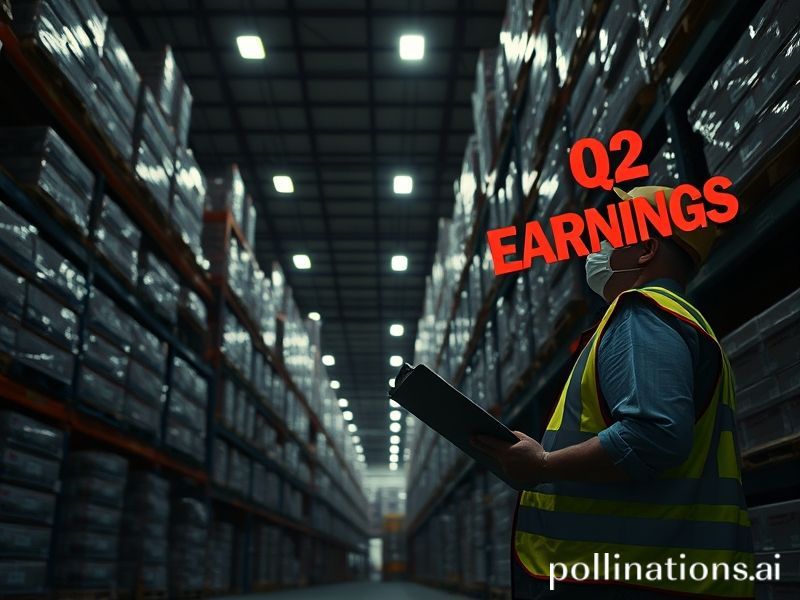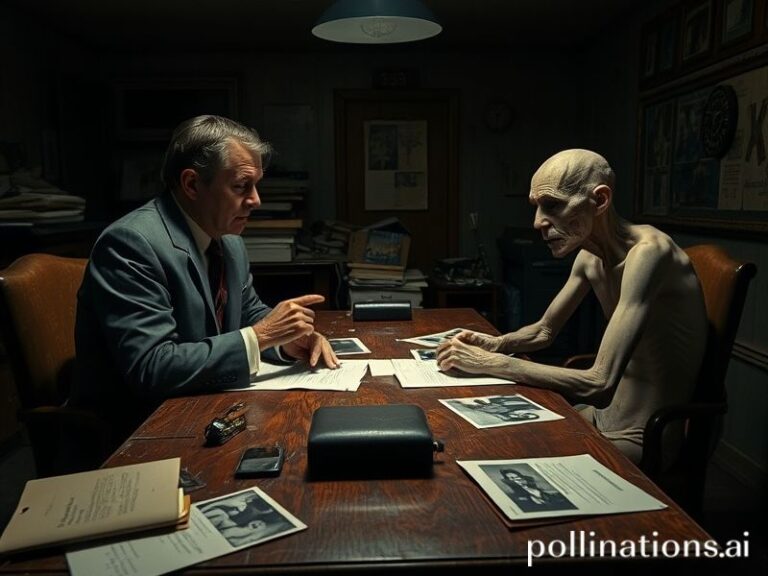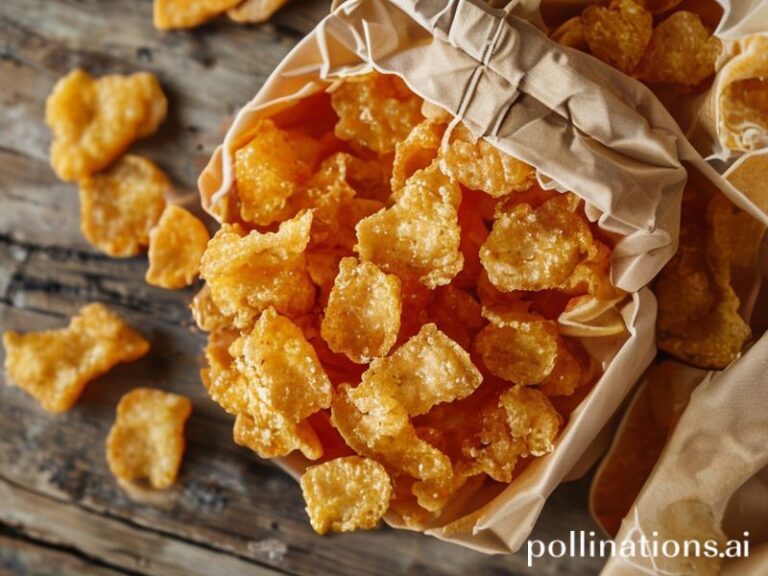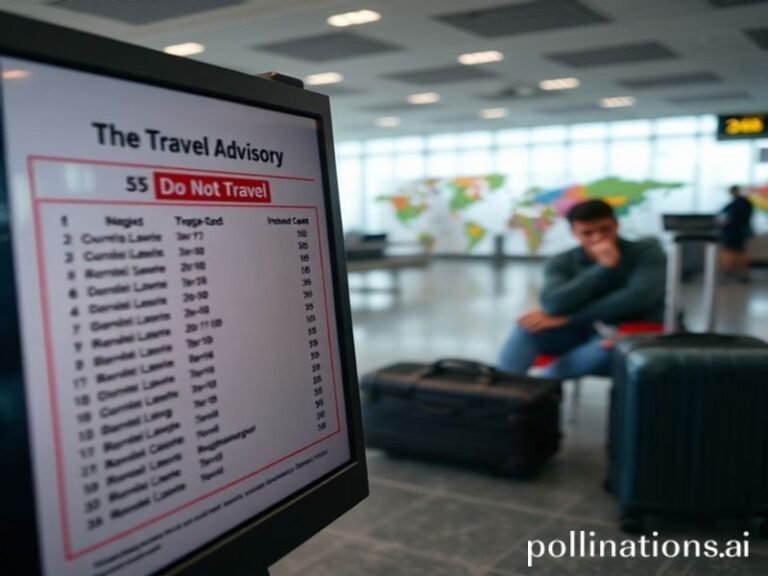Costco’s Global Goldmine: How Bulk Buying Became Humanity’s Last Shared Religion
**Costco’s Cart of Capitalism: When Bulk Buying Becomes a Global Religion**
*By Our Correspondent, Still Recovering from a 48-Pack of Existential Dread*
If the world is ending—and most indices suggest it’s simply on clearance—then Costco is the air-locked fallout shelter where survivors will haggle over apocalypse-sized jars of pickles. The Issaquah, Washington-based warehouse club just reported another quarterly revenue beat, raking in $58.5 billion in three months, a figure that eclipses the annual GDP of Iceland and, more importantly, confirms that the human species will gladly trade sovereignty for a 5-pound tub of red licorice.
Internationally, the numbers are almost charming in their absurdity. Costco now operates 875 stores, 267 of them outside the United States, a footprint that spans from the manicured parking lots of suburban Melbourne to the neon outskirts of Tokyo. Memberships—essentially a tithe to the church of 32-roll toilet paper—have ballooned to 129 million, a population larger than Mexico and, notably, more cohesive than the European Union. The renewal rate globally hovers at 90%, proving that once you’ve pushed a cart the size of a small tank, there’s no going back to the artisanal bodega.
Analysts—those professional tea-leaf readers—credit the surge to “inflation-weary shoppers trading down.” Translation: the middle class, freshly mugged by rent and energy bills, finds solace in buying 48 rolls of paper towels at once, as if sheer volume could sop up the mess of late-stage capitalism. In South Korea, where Costco’s single warehouse generates the highest sales per square foot on Earth, families treat Saturday trips like secular pilgrimages, complete with ritualistic $4.99 rotisserie chickens that taste suspiciously of salvation and MSG.
Meanwhile, in China, the company’s two stores are so mobbed that Shanghai police had to implement crowd-control barriers usually reserved for pop concerts or sudden currency devaluations. The Chinese consumer, long stereotyped as a lover of luxury, has discovered the erotic thrill of buying a gallon of Kirkland-brand olive oil for the price of a Beijing cocktail. It’s globalization’s sweetest irony: the same country that once invented paper now imports it by the pallet.
The rotisserie chicken, that bronzed idol spinning on its spit, deserves its own paragraph. Costco deliberately keeps it at $4.99, a loss-leader so sacred it might as well be nailed to the entrance like a retail Jesus. Across continents, the price hasn’t budged since the Berlin Wall fell, a deflationary miracle economists can’t explain without weeping. In Mexico City, where inflation recently hit a 22-year high, the chicken is a civic constant, tastier than pesos and arguably more trusted.
Of course, no earnings report is complete without acknowledging the supply-chain slapstick that keeps the whole circus rolling. While the Red Sea is a live-action game of Battleship and European farmers block highways with tractors, Costco’s buyers somehow still fill pallets with Spanish almonds, Thai shrimp, and French brie—proof that logistics managers are the unsung James Bonds of our era, just with better dental plans.
Membership revenue alone—$1.1 billion this quarter—now functions like a sovereign wealth fund for suburban dads. Goldman Sachs recently upgraded the stock, noting that Costco “enjoys a moat wider than most nation-states,” which is banker-speak for “good luck nationalizing a 30-pack of quinoa.” In an age when trust in institutions evaporates faster than cheap vodka, shoppers still believe Costco will not, in fact, poison them, a loyalty politicians can only fantasize about.
So what does it mean, globally, when a bulk-discount chain outperforms entire currencies? Perhaps that the modern citizen no longer pledges allegiance to flag or faith, but to the promise of a free sample on a toothpick. As glaciers calve and democracies overheat, we the people will still queue for a $1.50 hot-dog-and-soda combo whose price is apparently written into the U.S. Constitution—or at least carved into the breakroom wall in Issaquah.
In conclusion, Costco’s earnings remind us that civilization’s last binding ritual isn’t the ballot box; it’s the 7:30 a.m. line outside a concrete bunker where you can buy a casket right next to a 72-pack of croissants. Call it bleak, call it beautiful, but do call it before the food court runs out of napkins—because in this economy, they’re the closest thing we have to universal healthcare.







